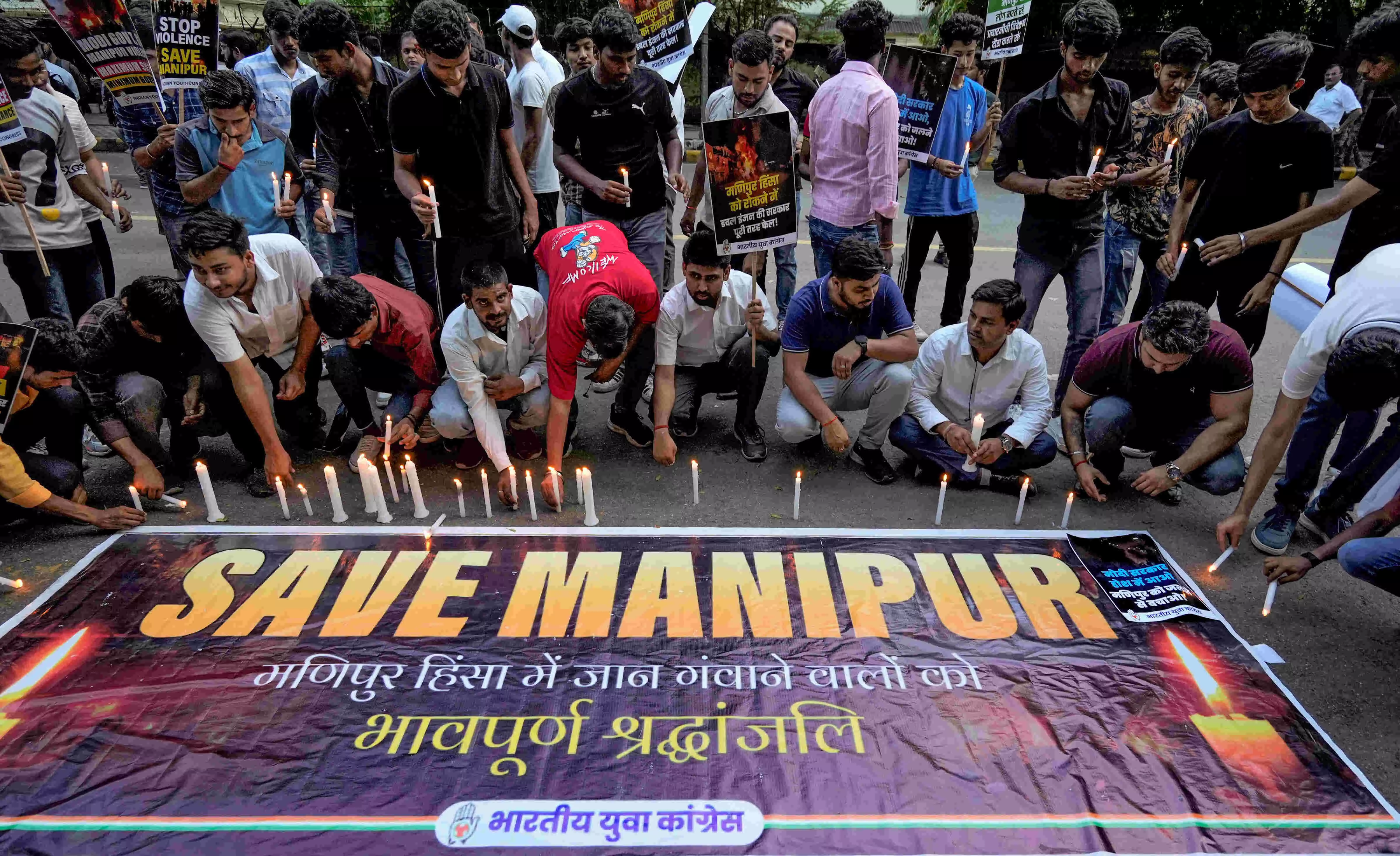Fiery acrimony

More than 10 months have passed since a lethal violence unfolded in the north-eastern state of Manipur, but there seems to be no solution in sight for this perpetual crisis yet. On the contrary, the gulf only appears to be widening in the wake of rising distrust between Kuki and Meitei communities. Adding fuel to fire is the allegedly partisan approach of the state government, tilted heavily in favour of the Meitei community.
The conflict, one may recall, started in response to an affirmative action favouring the Meiteis who, despite being in relative minority, enjoy unequivocal dominance in state’s polity, society and economy. The two communities are known to maintain aloof lifestyles vis-à-vis each other and, consequently, hold glaring mistrust. Of course, no populace is without conflict. However, the situation in Manipur took some real ugly turn as a result of the state leadership taking the side of one of the parties in conflict. Since his re-election in 2021, Chief Minister Biren Singh has adopted a stringent stance against “illegal migration” from Myanmar, hillside poppy cultivation, and alleged forest land encroachment. Many perceive these measures as biased against the Kuki community. Despite escalating violence in the state, Singh is alleged to show little inclination towards impartiality. While being sharp in his rebuke against the Kukis, he is seldom seen castigating Meitei fundamentalist groups. Critics even go on to dub him as an “ethnic strongman.”
A spate of recent legislative and administrative actions partly validate these allegations. In the first place, Biren Singh has proposed to implement NRC in the state with Central assistance. This comes close on the heels of a recent resolution on illegal migration in the state. The decision to keep 1961 as the base year for identification echoes with Inner Line Permit regime, aiming to regulate entry of “outsiders”. In another development, the Union Home Minister announced last month to fence the Myanmar border, including those aligned with Manipur. Additionally, the scrapping of Free Movement Regime is being contemplated. These measures, too, are in line with the government’s objective of curbing “illegal migration” — a rhetoric that finds support from the Meitei community.
Kukis, on the other hand, are tribal people sharing traditional kinships across borders. Additionally, they also carry out cross-border trade and other activities permissible under law. Fuelled by partisan sentiments, the abovementioned legislative and administrative actions, carried under the garb of curbing illegal migration, can hamper the traditional lifestyles of the Kuki community.
Furthermore, the recent approval of the Manipur Names of Places Bill, 2024, criminalising the alteration of place names, reflects deeper tensions within the state's diverse communities. While aimed at preserving historical and cultural legacies behind nomenclatures, the bill apparently seeks to counter the alternative names of places used by the Kuki community. By criminalising the use of alternative place names, the government risks further alienating marginalised groups and exacerbating existing divisions. The present situation in Manipur presents two facts: the state is burning under the fire of ethnic acrimony, and this fire is being persistently fuelled. It should be the prime duty of state leadership to prevent the state from burning by choosing harmony and impartiality over acrimony.




